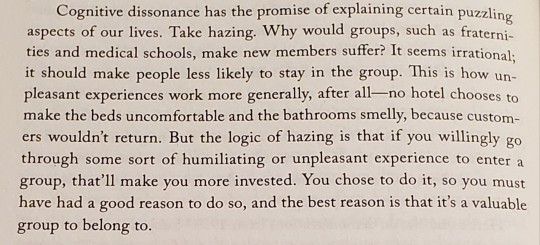#paul bloom
Explore tagged Tumblr posts
Text
The Root of All Cruelty? by Paul Bloom
https://www.newyorker.com/magazine/2017/11/27/the-root-of-all-cruelty
Opening in a private window works. But here are some excerpts:
"The thesis that viewing others as objects or animals enables our very worst conduct would seem to explain a great deal. Yet there’s reason to think that it’s almost the opposite of the truth.
At some European soccer games, fans make monkey noises at African players and throw bananas at them. Describing Africans as monkeys is a common racist trope, and might seem like yet another example of dehumanization. But plainly these fans don’t really think the players are monkeys; the whole point of their behavior is to disorient and humiliate. To believe that such taunts are effective is to assume that their targets would be ashamed to be thought of that way—which implies that, at some level, you think of them as people after all.
Consider what happened after Hitler annexed Austria, in 1938...
The Jews who were forced to scrub the streets—not to mention those subjected to far worse degradations—were not thought of as lacking human emotions. Indeed, if the Jews had been thought to be indifferent to their treatment, there would have been nothing to watch here; the crowd had gathered because it wanted to see them suffer. The logic of such brutality is the logic of metaphor: to assert a likeness between two different things holds power only in the light of that difference. The sadism of treating human beings like vermin lies precisely in the recognition that they are not.
What about violence more generally? Some evolutionary psychologists and economists explain assault, rape, and murder as rational actions, benefitting the perpetrator or the perpetrator’s genes. No doubt some violence—and a reputation for being willing and able to engage in violence—can serve a useful purpose, particularly in more brutal environments. On the other hand, much violent behavior can be seen as evidence of a loss of control. It’s Criminology 101 that many crimes are committed under the influence of drugs and alcohol, and that people who assault, rape, and murder show less impulse control in other aspects of their lives as well. In the heat of passion, the moral enormity of the violent action loses its purchase.
But “Virtuous Violence: Hurting and Killing to Create, Sustain, End, and Honor Social Relationships” (Cambridge), by the anthropologist Alan Fiske and the psychologist Tage Rai, argues that these standard accounts often have it backward. In many instances, violence is neither a cold-blooded solution to a problem nor a failure of inhibition; most of all, it doesn’t entail a blindness to moral considerations. On the contrary, morality is often a motivating force: “People are impelled to violence when they feel that to regulate certain social relationships, imposing suffering or death is necessary, natural, legitimate, desirable, condoned, admired, and ethically gratifying.” Obvious examples include suicide bombings, honor killings, and the torture of prisoners during war, but Fiske and Rai extend the list to gang fights and violence toward intimate partners. For Fiske and Rai, actions like these often reflect the desire to do the right thing, to exact just vengeance, or to teach someone a lesson. There’s a profound continuity between such acts and the punishments that—in the name of requital, deterrence, or discipline—the criminal-justice system lawfully imposes. Moral violence, whether reflected in legal sanctions, the killing of enemy soldiers in war, or punishing someone for an ethical transgression, is motivated by the recognition that its victim is a moral agent, someone fully human.
In the fiercely argued and timely study “Down Girl: The Logic of Misogyny” (Oxford), the philosopher Kate Manne makes a consonant argument about sexual violence. “The idea of rapists as monsters exonerates by caricature,” she writes, urging us to recognize “the banality of misogyny,” the disturbing possibility that “people may know full well that those they treat in brutally degrading and inhuman ways are fellow human beings, underneath a more or less thin veneer of false consciousness.”...
If the worst acts of cruelty aren’t propelled by dehumanization, not all dehumanization is accompanied by cruelty. Manne points out that there’s nothing wrong with a surgeon viewing her patients as mere bodies when they’re on the operating table; in fact, it’s important for doctors not to have certain natural reactions—anger, moral disgust, sexual desire—when examining patients. The philosopher Martha C. Nussbaum has given the example of using your sleeping partner’s stomach as a pillow when lying in bed, and goes on to explore the more fraught case of objectification during sexual intercourse, suggesting that there’s nothing inherently wrong about this so long as it is consensual and restricted to the bedroom...
As a philosopher, Manne grounds her arguments in more technical literature, and at one point she emphasizes the connection between her position and the Oxford philosopher P. F. Strawson’s theory of “reactive attitudes.” Strawson argued that, when we’re dealing with another person as a person, we can’t help experiencing such attitudes as admiration and gratitude, resentment and blame. You generally don’t feel this way toward rocks or rodents. Acknowledging the humanity of another, then, has its risks, and these are neatly summarized by Manne, who notes that seeing someone as a person makes it possible for that person to be a true friend or beloved spouse, but it also makes it possible for people to be “an intelligible rival, enemy, usurper, insubordinate, betrayer, etc.”...
Certainly, Pitzer’s description of various concentration camps contains so many examples of cruelty and degradation that it’s impossible to see them as a mere failure to acknowledge the humanity of their victims. As the scholar of warfare Johannes Lang has observed of the Nazi death camps, “What might look like the dehumanization of the other is instead a way to exert power over another human.”
The limitations of the dehumanization thesis are hardly good news. There has always been something optimistic about the idea that our worst acts of inhumanity are based on confusion. It suggests that we could make the world better simply by having a clearer grasp of reality—by deactivating those brain implants, or their ideological equivalent. The truth may be harder to accept: that our best and our worst tendencies arise precisely from seeing others as human."
#Paul Bloom#I have come to agree with this view#I tried to indent the whole big part in quotes but it wouldn't post
21 notes
·
View notes
Text
Empathy is like a spotlight directing attention and aid to where it’s needed. But spotlights have a narrow focus, and this is one problem with empathy. It does poorly in a world where there are many people in need and where the effects of one’s actions are diffuse, often delayed, and difficult to compute, a world in which an act that helps one person in the here and now can lead to greater suffering in the future.
– Paul Bloom, Against Empathy: The Case for Rational Compassion (2016)
2 notes
·
View notes
Quote
Why would we ever choose to suffer? Sometimes, as a hedonist would tell you, it’s for the sake of tangible goals. Pain can distract us from our anxieties and even help us transcend the self. Choosing to suffer can serve social goals – it can display how tough we are or serve as a cry for help. Unpleasant emotions, such as fear and sadness, are part of play and fantasy and can provide moral satisfaction. And effort and struggle and difficulty can, in the right contexts, lead to the joys of mastery and flow. But there’s more. The economist George Loewenstein gives the example of serious mountaineering. The pleasures here are not obvious, to say the least; rather, it seems to be “unrelenting misery from end to end”. Diaries and journals by climbers talk about “relentless cold (often leading to frostbite and loss of extremities, or death), exhaustion, snow-blindness, altitude sickness, sleeplessness, squalid conditions, hunger, fear…” There is constant craving for food. And there is boredom: “On a typical ascent, the vast majority of time is spent in mind-bogglingly monotonous activities – for example, being ‘weathered out’ for many hours in a small smelly tent crammed in with other climbers.” Climbers describe their experiences as lonely and alienating, spending days and weeks in bitter silence, with disagreements that don’t get smoothed over. And yet people do it, and then do it again and again, getting some satisfaction that doesn’t reduce in any real way to pleasure. Apparently, then, for at least some of us, a life well lived is more than a life of pleasure and happiness. I side with the economist Tyler Cowen, who wrote: “What’s good about an individual human life can’t be boiled down to any single value. It’s not all about beauty or all about justice or all about happiness. Pluralist theories are more plausible, postulating a variety of relevant values, including human wellbeing, justice, fairness, beauty, the artistic peaks of human achievement, the quality of mercy, and the many different and, indeed, sometimes contrasting kinds of happiness. Life is complicated.”
Paul Bloom, Hedonism is overrated - to make the best of life there must be pain, says this Yale professor
#Paul Bloom#Hedonism is overrated - to make the best of life there must be pain says this Yale professor
12 notes
·
View notes
Text
The Root of All Cruelty? 一切殘忍的根源? by Paul Bloom | The New Yorker / 🤓 👍worth reading!
4 notes
·
View notes
Text

#excessive daydreaming#daydreaming#mind#wandering mine#psych101#psychology#psych#paul bloom#the story of the human mind#a little bit alexis
2 notes
·
View notes
Text
youtube
We often think that empathy, our capacity "to feel someone's pain," is the ultimate source of goodness. Nothing could be farther from the truth, argues psychology professor Paul Bloom. Scientific studies show that empathy is a capricious and irrational emotion that can cloud people's judgement and even lead to violence and cruelty.
#Paul Bloom#Judgement#MorPsychology#Goodness#Irrational Emotion#Emotion#Against Empathy#Empathy#capricious emotion#The Case for Rational Compassion#Rational Compassion#Moribund Institute#Youtube
4 notes
·
View notes
Text

Title: The Sweet Spot | Author: Paul Bloom | Publisher: Bodley Head (2021)
1 note
·
View note
Text
JSWISS and Eric Roberson share new single "Superman"
Posted on https://www.thewordisbond.com/jswiss-x-eric-roberson-superman/
JSWISS and Eric Roberson share new single "Superman"

JSWISS teams up with vocalist Eric Roberson for his latest release "Superman". Produced by his longtime collaborator Paul Bloom, the track has a blend of jazz-soul with hip-hop sensibilities and sees JSWISS in reflective mode as he details the never-ending struggle he is stuck in but has
0 notes
Photo


Hannibal (2013-2015) Breaking Bad (2008-2013)
#hannibal#breaking bad#mads mikkelsen#hugh dancy#caroline dhavernas#bryan cranston#aaron paul#anna gunn#hannibal lecter#will graham#hannigram#alana bloom#walter white#jesse pinkman#skyler white#nbc hannibal#hannibal nbc#murder husbands
2K notes
·
View notes
Text
HEY!
Happy Goundhog Day (a stupid american holiday that i actually love cause of how RIDICULOUS it is)
first of all, punxsatawney phil you traitorous skank rat giving us six more weeks of winter.
second of all, the movie “Groundhog Day” (1993) is what inspired my favorite fan fic i’ve ever written.
So here’s me pushing “Under the White Magnolia Blooms” another time. I love this story, and I hope you do too!!
“On April 28th, 1961, 8:26am Paul McCartney’s alarm goes off.
“Paul was on the precipice of something brilliant, and every nerve in his body could feel it. What was about to take place was something deeply woven into the tapestry of his fate and history. Paul was nothing of the person he once was, and the person he was about to become was just on the horizon.”
Inspired by Groundhog Day and “A Day in the Life” by The Beatles”

#groundhog day#under the white magnolia blooms#the beatles#mclennon#john lennon#paul mccartney#george harrison#ringo starr#paul mccartney x john lennon#mclennon fanfiction#mclennon smut
62 notes
·
View notes
Text
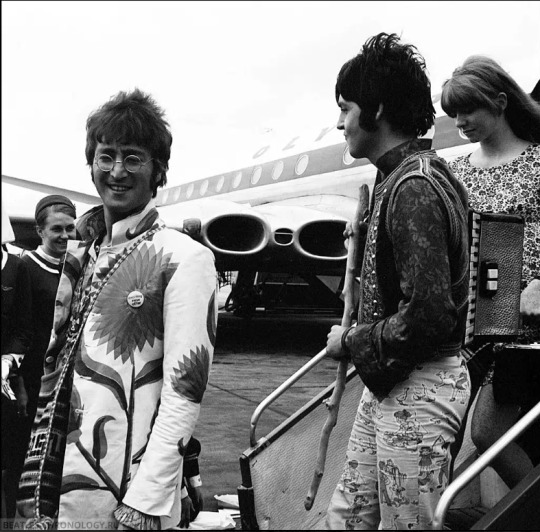
I for one had not seen Paul's shapely backside in the goose pants before!
John's button says Exciting New Offer.
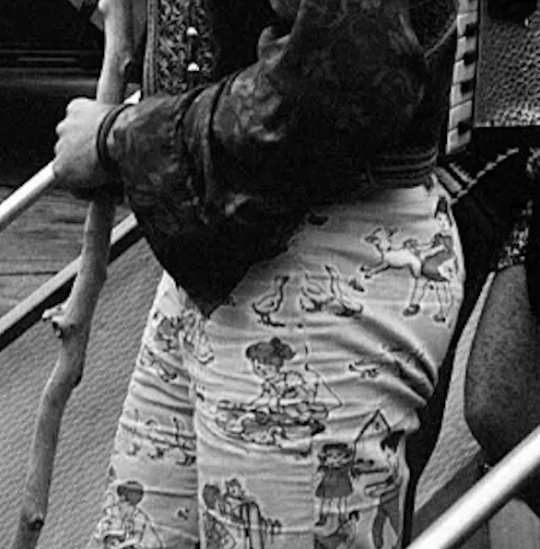
Jane is present but the couple is here:
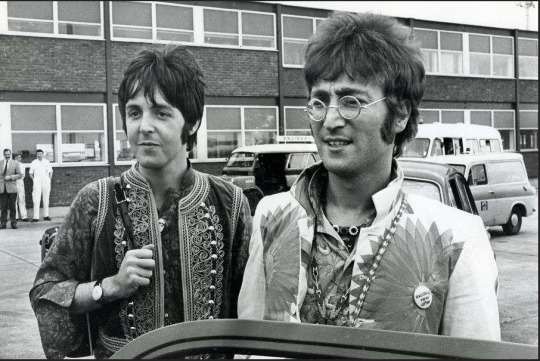
(more Greece photos here [beatles-chronology.ru])
#John Lennon#Paul McCartney#Jane Asher#an exciting new offer is blooming#and Paul spotted it and is wetting his lips#mclennon#1967
144 notes
·
View notes
Text




Icons was mentioned🤎
#rings of power#lord of the rings#silmarillion#beren and luthien#tuor#earendil#sauron#pedro pascal#paul mescal#orlando bloom
14 notes
·
View notes
Text


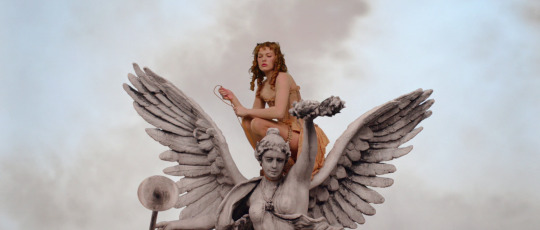



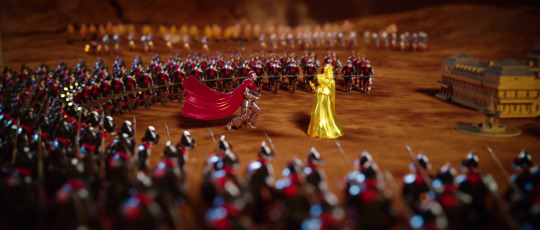


the three musketeers, 2011 (dir. paul w.s. anderson)
#filmedit#paul w.s. anderson#the three musketeers#logan lerman#luke evans#ray stevenson#matthew macfayden#milla jovovich#orlando bloom#christoph waltz#mads mikkelsen
58 notes
·
View notes
Text
i can't with these names. like i know they're purposefully ridiculous but it's still so funny
#doctor who#dw#dot and bubble#15th doctor#my posts#v rambles#“WHAT HAPPENED TO COOPER MERCY?? GOTHIC PAUL PLS UNMUTE”#“YES THAT'S WHAT I'VE BEEN SAYING!! LIKE WHEN HAVE YOU LAST SEEN STEWIE BLOOM AND ROOSTER JACKET AND KIRSTIE BOOKKEEPER?”
21 notes
·
View notes
Text




Blooming flower nails by 528hzhottie for heeeunchungg
Photographer: heeeunchungg
Producer: ellie.love
Model: lauradetrow
Dancer: joy_means_gippeum
Key Photo Assist: lydiat_
Photo Assist / BTS Photographer: alynnat
Stylist: mari4l3jandra
Set Designer: m_linhart
MUA: limbafter1imb
SFX Artist: pastelvogue
Nail Artist: 528hzhottie
PA: officialcostcohotdog
#flower nails#water droplet nails#editorial nails#ethereal nails#editorial#digitals#528hzhottie#nail art#nature nails#nature#nature core#water droplets#flowers#blooming flowers#floral arrangement#floral nails#jean paul gaultier#photoshoot#editorial shoot
42 notes
·
View notes
